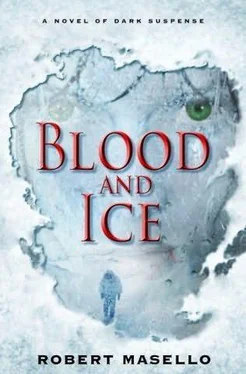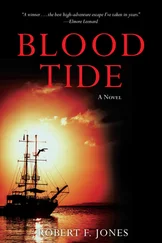Robert Masello - Blood and Ice
Здесь есть возможность читать онлайн «Robert Masello - Blood and Ice» весь текст электронной книги совершенно бесплатно (целиком полную версию без сокращений). В некоторых случаях можно слушать аудио, скачать через торрент в формате fb2 и присутствует краткое содержание. Жанр: Триллер, на английском языке. Описание произведения, (предисловие) а так же отзывы посетителей доступны на портале библиотеки ЛибКат.
- Название:Blood and Ice
- Автор:
- Жанр:
- Год:неизвестен
- ISBN:нет данных
- Рейтинг книги:3 / 5. Голосов: 1
-
Избранное:Добавить в избранное
- Отзывы:
-
Ваша оценка:
- 60
- 1
- 2
- 3
- 4
- 5
Blood and Ice: краткое содержание, описание и аннотация
Предлагаем к чтению аннотацию, описание, краткое содержание или предисловие (зависит от того, что написал сам автор книги «Blood and Ice»). Если вы не нашли необходимую информацию о книге — напишите в комментариях, мы постараемся отыскать её.
Blood and Ice — читать онлайн бесплатно полную книгу (весь текст) целиком
Ниже представлен текст книги, разбитый по страницам. Система сохранения места последней прочитанной страницы, позволяет с удобством читать онлайн бесплатно книгу «Blood and Ice», без необходимости каждый раз заново искать на чём Вы остановились. Поставьте закладку, и сможете в любой момент перейти на страницу, на которой закончили чтение.
Интервал:
Закладка:
“Moira tells me it's unlikely Miss Nightingale will give them leave,” Captain Rutherford said, leaning on his elbows at the rail and divining what Sinclair was looking for.
Sinclair glanced at his companion, whose brow was gleaming with sweat.
“I told her that this Miss Nightingale was no patriot, then,” Rutherford concluded, taking his fur pelisse from his shoulder and laying it across the rail.
Sinclair had never quite understood what bond existed between the captain and Miss Mulcahy While his own connection to Eleanor Ames was in itself unusual-and, as anyone would have told Sinclair, held no promise in practical terms-Rutherford's attachment to the buxom, earthy nurse Mulcahy was stranger by far. Rutherford came from a very prominent family in Dorset-he was destined for a peerage-and his family would be appalled at this liaison. Yes, it was, of course, understood that cavalry officers had their pick of the ladies in town, and that they often indulged in reckless, even unwholesome, affairs, but it was also understood that the young men would eventually come to their senses, especially on the eve of a great foreign expedition. It was the perfect time, and the perfect means, to cut the cord. It was one of the signal advantages to being in the army.
But behind Rutherford's bluster, Sinclair thought he had detected an oddly sentimental streak. He was not a man comfortable in the salons to which he was regularly invited, or around women in general-Sinclair had once seen him clumsily upend a punch bowl on a young lady to whom he was being introduced. He much preferred the life of the barracks, with its bawdy talk and camaraderie, and there was something about Miss Moira Mulcahy, for all her working-class ways, that appealed to him. Indeed, if Sinclair had to hazard a guess, it was that very lack of refinement that appealed to him… coupled, of course, with her bountiful bosom, always and ever on display. It occurred to Sinclair that he might be better off trying to spot an expanse of creamy flesh in the dockside mob than the new yellow dress that Eleanor might accompany Moira in.
Lord Cardigan, commander of the 11th Hussars, could be seen on horseback, in all his finery, surrounded by aides-de-camp, bellowing out orders. He was a vain, handsome man, with a full russet moustache and side-whiskers, and he rode erect in the saddle. But he was known for his hot temper and his fanatical devotion to protocol and foolish points of honor; indeed, he had created a scandal at an officers’ mess, the repercussions of which haunted him still. Lord Cardigan insisted that only champagne might be served at his table, and not the black bottles of porter that many of the soldiers, particularly those who had served in India, enjoyed. When a general's aide requested Moselle, which was placed on the table in its own black bottle rather than being decanted first, Lord Cardigan mistook it for porter, exploded into a rage, and insulted a captain of the regiment. Before the affair blew over, all of London had heard about it, and laughed. Lord Cardigan could not attend the theater, or even walk his Irish wolfhounds down the streets of Brunswick Square, without hearing the occasional catcall of “black bottle!” The men under his command particularly resented it, and often fell into brawls when so taunted.
Though the 17th Lancers of the Light Brigade were nominally under the command of Lord Lucan, Cardigan's stubborn brother-in-law, Lieutenant Copley suspected that they, the hapless soldiers, were actually pawns in a bitter family rivalry.
“Here,” Rutherford said, to a passing naval officer, “may I borrow that?”
The navy man, perhaps so bowled over by the richness of Rutherford's costume that he was unable to determine a particular rank, immediately relinquished the telescope he carried, and went on about his duties.
Rutherford raised the telescope and scanned the crowd, from the top of the High Street to the bottom of the loading ramps. There was the unending tramp of the soldiers’ feet, the neighing and huffing of the horses, the vagrant notes of the Inniskilling anthem, played by the military band and blown out to sea on the swirling winds. An order was shouted out, relayed around the decks several times, and dozens of sailors began rounding up the stragglers, among whom quick embraces and mementoes were exchanged with family and well-wishers; the heavy ramps were sealed off, then hauled aboard the boats. Dockhands unknotted the thick mooring ropes and threw their loose ends aside. But Rutherford's search had apparently come up empty-handed.
“I shall have a word with this Florence Nightingale when next I see her,” Rutherford said in a huff.
“Let me try,” Sinclair said, taking the telescope in hand. He lifted it, and spotted first the sight of a horse's rump-Lord Cardigan's horse, as it happened-traveling back toward town. The great lord, scuttlebutt had it, would follow the troops later, in the more comfortable accommodations afforded by a French steamer.
But Sinclair was having no more luck than Rutherford. For a moment, he thought he saw Frenchie's lady friend, Dolly, but the size of the bonnet made it too hard to be sure. Even Frenchie had become separated from his friends in the melee, and was presumably lost somewhere on the crowded deck of the Henry Wilson. Sinclair saw a little boy holding his mother's hand and smiling bravely, and another who was far more intent on trying to catch an injured sparrow that was hopping between the wheels of a commissary wagon.
More orders were shouted, and a dozen sailors scrambled up the rigging, loosing the sails and letting them unfurl with a great flapping noise. The ship creaked and groaned, like a great stiff giant coming to life, and a ribbon of brackish water now ran between it and the dock. Sinclair swung the telescope from one end of the harbor to the other, stopping once at a yellow parasol, and again at what turned out to be a yellow placard advertising a show in Drury Lane.
“I wonder when we shall see our first fight,” Rutherford said. “I hope it's not some skirmish, all close quarters and no chance to use the lance properly.” The lance had been a relatively recent innovation, modeled, as were their uniforms, on the Polish lancers who had so distinguished themselves at Waterloo.
Sinclair muttered his assent, while continuing the search. He was just about to give it up-the lurching and swaying of the vessel made it difficult to hold any image still-when he saw an open wagon rumble down a side alley, and two figures, one in yellow, one in a white apron, jump off its end and run toward the docks. With one hand, he held on to the railing and with the other trained the telescope on the running girls. The one in front was Eleanor, clutching her nurse's hat, and Moira, holding her skirts up and away from her ankles, lumbered behind.
The Henry Wilson was now a hundred yards or more from the dock, and the flag flying from its stern obscured his view. But he could tell that the girls’ eyes were trained, and their steps directed, toward one of the other transports leaving the dock. Eleanor, he could see, had stopped a man in uniform, and after a few hasty words with him, she had taken Moira by the arm and turned her instead toward the dock from which the 17th Lancers’ ship had just departed.
The flag rippled and snapped in the gathering sea breeze, and Sinclair shouted to Rutherford, “They're there! Coming toward the dock!”
Rutherford craned his neck over the bulwark railing, and Sinclair tucked the telescope under one arm and waved in wide, sweeping motions.
More sails cascaded down from the topmasts and the ship instantly pitched forward, gaining speed. The land was being left behind, and the people on it were being quickly reduced to specks.
Sinclair lifted the telescope one more time, and found the bright spot of yellow one last time. He willed her to look in his direction- she seemed to be staring toward the bulging sails for some reason- and just as the ship plunged into the first of the waves to skirt the breakwater, casting a mist of chilling spray over everyone on the decks, he thought she had indeed turned her green-eyed gaze toward him. Or at least he chose to think so.
Читать дальшеИнтервал:
Закладка:
Похожие книги на «Blood and Ice»
Представляем Вашему вниманию похожие книги на «Blood and Ice» списком для выбора. Мы отобрали схожую по названию и смыслу литературу в надежде предоставить читателям больше вариантов отыскать новые, интересные, ещё непрочитанные произведения.
Обсуждение, отзывы о книге «Blood and Ice» и просто собственные мнения читателей. Оставьте ваши комментарии, напишите, что Вы думаете о произведении, его смысле или главных героях. Укажите что конкретно понравилось, а что нет, и почему Вы так считаете.












